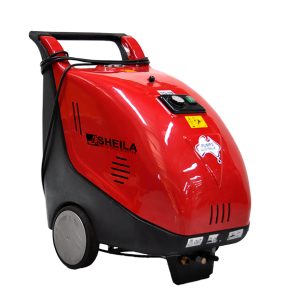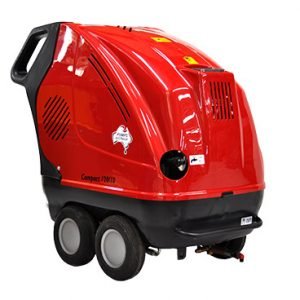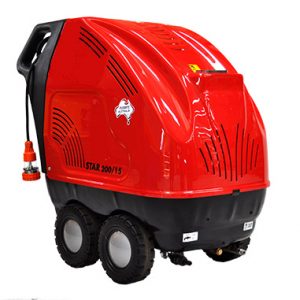Hot Water Pressure Washers
Hot Water Pressure Washers
Discover our range of high-performance hot water pressure washers designed for various industrial and commercial hot water cleaning applications. Whether you need a petrol, diesel, electric, or hydraulic driven unit, we have the perfect solution for you.
Hot Water Pressure Washers
Can’t find what you’re looking for?
Can’t find what you’re looking for? Try our quick selection guide!
Showing 1–12 of 19 resultsSorted by latest
-

Volcano ECO 4000 – Hot & Cold
Read more -

3650psi 21 LPM – Firejet 21/250
Read more -

3650psi 15 LPM – Firejet 15/250
Read more -

2000psi 10 LPM – Firejet 10/140
Read more -

1900psi 8 LPM – Sheila (K130)
Read more -

1750psi 10 LPM – K10-120 Compact Industrial
Read more -

3000psi 15 LPM – Starjet 200/15
Read more -

Diesel Xtreme 3000 – Hot & Cold (Open Design)
Read more -


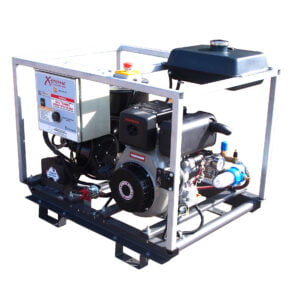
Diesel Xtreme 13/4000 – Hot & Cold (Open Design)
Read more -


Diesel Xtreme 21/4000 – Hot & Cold (Open Design)
Read more -


Diesel Xtreme 4000 – Hot & Cold
Read more -

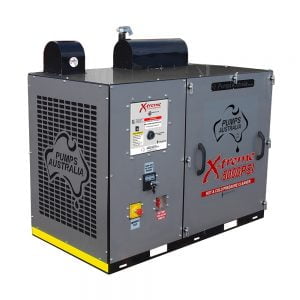
Diesel Xtreme 5000 – Hot & Cold
Read more
Can’t find what you’re looking for?
Frequently Asked Questions - Hot Water Pressure Washers
How does a hot water pressure washer work?
A plunger pump (also commonly known as a Triplex Pump) is commonly used in high-pressure washers. These pumps can generate high pressure by using three pistons. The pump pressurizes the water, often reaching pressures of 1000 to 4000 psi (pounds per square inch), significantly higher than standard garden hoses.
Hot water pressure washers utilize an electric ignitor and diesel fuel to generate controlled combustion, heating the high-pressure water before it reaches the spray gun.
What are the key benefits of using a hot water pressure washer?
Which Power Source Is Best, Petrol, Diesel or Electric?
Selecting the appropriate power source for a pressure washer, whether it’s petrol (gasoline), diesel, or electric, is a crucial decision that depends on various factors. Here’s an in-depth exploration of each option:
Petrol (Gasoline) Engine:
Pros:
Portability: Petrol pressure washers are highly portable and don’t rely on a power outlet. This makes them suitable for remote locations or areas without easy access to electricity.
No Cord Restrictions: Since there’s no power cord, users are not limited by cord length, allowing more flexibility during operation.
Cons:
Noise and Emissions: Petrol engines tend to be noisier and emit exhaust fumes, making them less suitable for indoor use or in areas with strict noise and emission regulations.
Not Minesite Compatible: The restriction on petrol engines, and gasoline-powered equipment in general, on mine sites is primarily due to safety and regulatory considerations.
Diesel Engine:
Pros:
Portability: Petrol pressure washers are highly portable and don’t rely on a power outlet. This makes them suitable for remote locations or areas without easy access to electricity.
Since there’s no power cord, users are not limited by cord length, allowing more flexibility during operation.
No Cord Restrictions: Since there’s no power cord, users are not limited by cord length, allowing more flexibility during operation.
Cons:
Initial Cost: Diesel pressure washers can have a higher upfront cost compared to their petrol or electric counterparts.
Maintenance Complexity: While diesel engines are durable, they may require more complex maintenance compared to simpler electric motors.
Electric Motor:
Pros:
Quiet Operation: Electric pressure washers are generally quieter than their combustion engine counterparts, making them suitable for noise-sensitive environments.
Low Maintenance: Electric motors require less maintenance compared to internal combustion engines, reducing long-term operational costs.
Environmentally Friendly: Electric pressure washers produce zero emissions at the point of use and are typically more environmentally friendly.
Cons:
Limited Portability: Electric pressure washers are limited by the length of the power cord, requiring a nearby electrical outlet. This can be a limitation in remote areas without electricity.
Dependency on Power Grid: Electric pressure washers rely on a stable power supply. Power outages or lack of electrical infrastructure can impact their usability.
What maintenance is required for a hot water pressure washer?
Regular maintenance includes descaling the boiler coil, checking filters (such as fuel and water), and inspecting hoses and nozzles for any potential leaks. Ensuring clean diesel fuel is used. Inspecting the ignitors for a clean spark. It’s also recommended to adhere to a maintenance schedule, this will help prolong the lifespan and efficiency of the unit.
What safety precautions should I take when using a hot water pressure washer?
How else can we help?
Couldn't Find Your Preferred Engine?
We carry a large range of other Diesel & Petrol engine brands not shown on our website. Ask us to quote with your preferred brand!
Couldn't Find Your Preferred Pump?
We carry a large range of other High Pressure Pump Brands not shown on our website. Ask us to quote with your preferred brand!
Sign up to our newsletter
"*" indicates required fields
Copyright © 2023 Pumps Australia Pty Ltd. All rights reserved. Sitemap.
Web Design by Cloud Cartel




